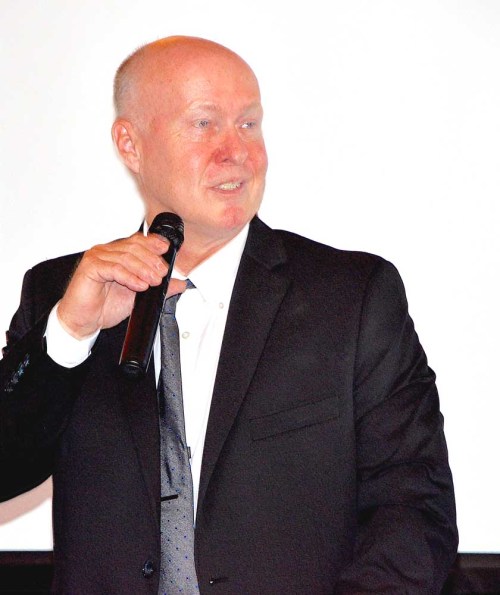GOP, Independent candidates make case to publishers
Published 1:24 pm Friday, July 20, 2018

- Patrick Starnes
POWELL BUTTE, Ore. — The Republican and Independent Party nominees for governor made their respective cases for a change of state leadership before an audience of newspaper editors and publishers Friday.
GOP nominee Knute Buehler, a state representative and orthopedic surgeon from Bend, and Independent Party of Oregon nominee Patrick Starnes, a cabinet maker from Brownsville, spoke briefly at the annual convention of the Oregon Newspaper Publishers Association.
Trending
Incumbent Gov. Kate Brown, the Democratic nominee, did not attend.
Brown initially declined the invitation because she planned to go to a National Governors’ Association conference in Santa Fe, N.M. But, Brown instead stayed in Oregon to oversee emergency response to major wildfires, according to a spokesman for her campaign.
At Friday’s forum, each candidate was permitted about 10 minutes to outline their platform, followed by roughly five minutes of questions from attendees.
Buehler outlined four priorities: improving the state’s public education system, making major reforms to foster care and Medicaid, reducing homelessness and supporting the state’s rural communities and businesses.
He aims to increase the state’s high school graduation rate, institute reforms to the struggling foster care system and lift up Oregon’s food, wood products and renewable energy industries.
He portrayed himself as an independent alternative to Brown, under whose leadership, he argued, the problems in these policy areas have worsened. Brown has been at the helm since early 2015, when Gov. John Kitzhaber resigned in the wake of an influence-peddling scandal.
Trending
“In order to solve these big problems … we’re going to need leadership from a governor, leadership that is a lot more independent and less partisan,” Buehler said. “Leadership that is actually more interested in innovative ideas than a particular ideology.”
In response to questions about state public records issues, Buehler said that as a legislator, after the Kitzhaber scandal, he’d sponsored — and the Legislature passed — stronger whistleblower protections for Oregon’s public employees.
Starnes, meanwhile, principally stumped for his main cause: campaign finance reform.
He wants to put limits on campaign contributions (The Oregon Constitution currently prohibits limits on campaign contributions and expenditures for state elections).
“I would argue that this big money in politics is what’s corrupting and stalemating our system,” Starnes said. “It’s a systemic problem.”
Starnes says, if elected, he would refuse to sign other legislation until campaign finance reform was signed into law. He claims that a lack of campaign finance regulations has played a part in allowing public employee health care and pension costs to climb because the government is beholden to special interests.
The Independent Party of Oregon became a major political party in the state in 2015, after party members comprised more than 5 percent of voters who participated in the 2014 general election.
In June, the party threatened legal action if Starnes wasn’t invited to major debates on the state’s television networks, citing the Federal Communications Commission’s “equal time” rule.
The general election is Nov. 6, 2018.
Christian Gaston, a spokesman for the Brown campaign, in an email dismissed Buehler’s assertions, and said the governor had been working on many of the priorities Buehler outlined Friday.
Gaston also said Brown supported campaign finance reform in the 2015 legislative session, and that she “will continue to push to make sure everyone’s voice is heard.”









